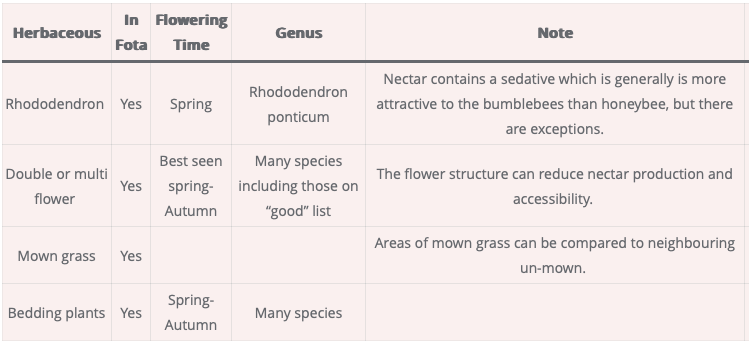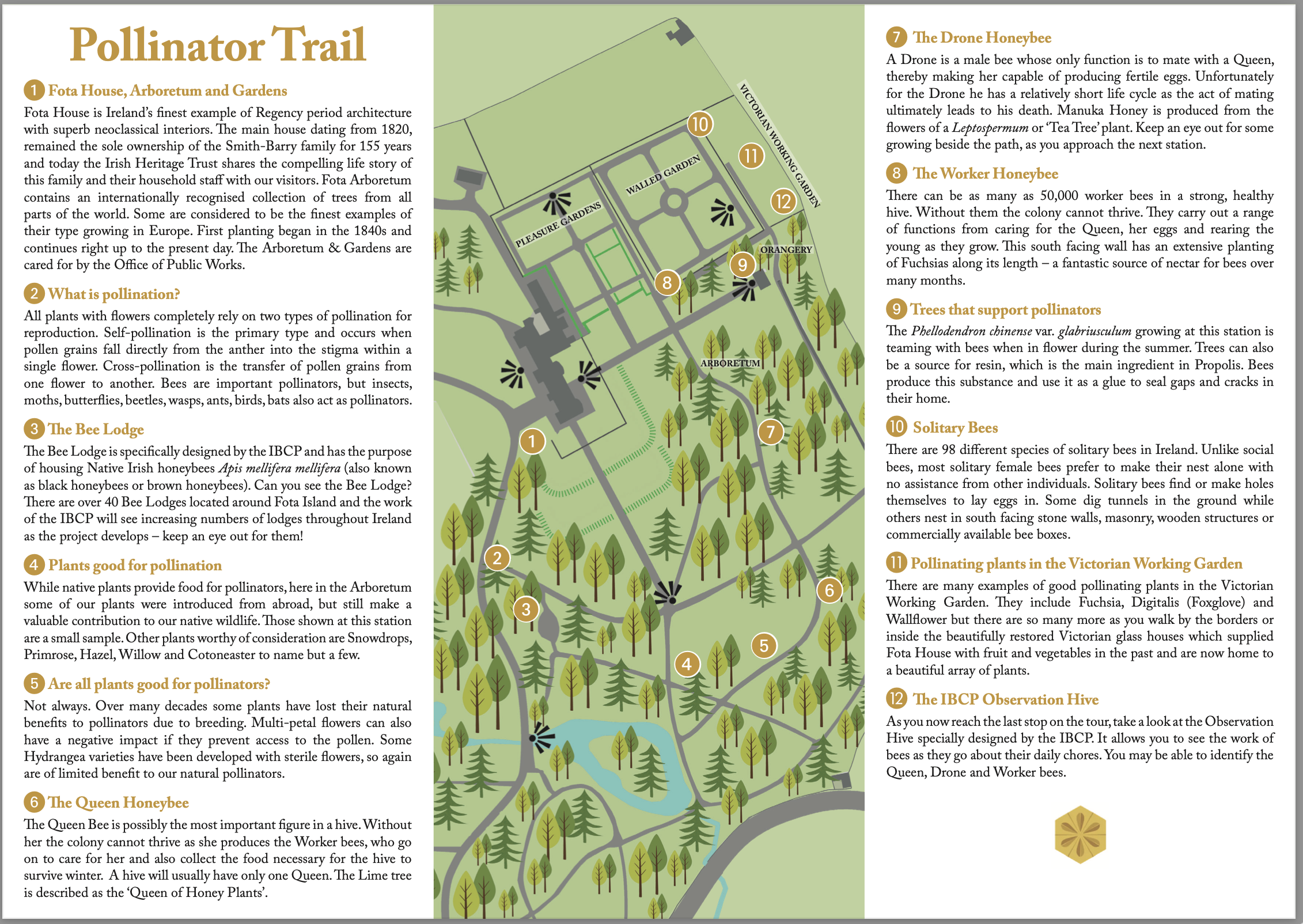Fota Pollinator Trail – Station 05
Are All Plants Good For Pollinators?
Not always. Some plants developed by propagators over many decades have lost some of their natural benefits to pollinators. Roses would be the best known case. Scent was not considered important and over time was greatly reduced. Multi petal flowers can also have a negative impact, if they prevent access to the pollen. Some Hydrangea varieties have been bred with sterile flowers, so again are of limited benefit to their natural pollinator.
This path in the Arboretum is known as ‘Hypericum / Pieris Walk’ and both plants have something to offer pollinators. While the Hypericum flowerhas no nectar, it is noted for an abundance of pollen and a long flowering season. The Pieris plants along this path were grown from wild collected seed making them unique representations of the species in Europe. Some are the source of a number of cultivars named and propagated by the former Mount Congreve Nursery in County Waterford. The flowers in late Spring are a valuable source of nectar and pollen for Bees.

Plants That Are Not So Beneficial For Pollinators


